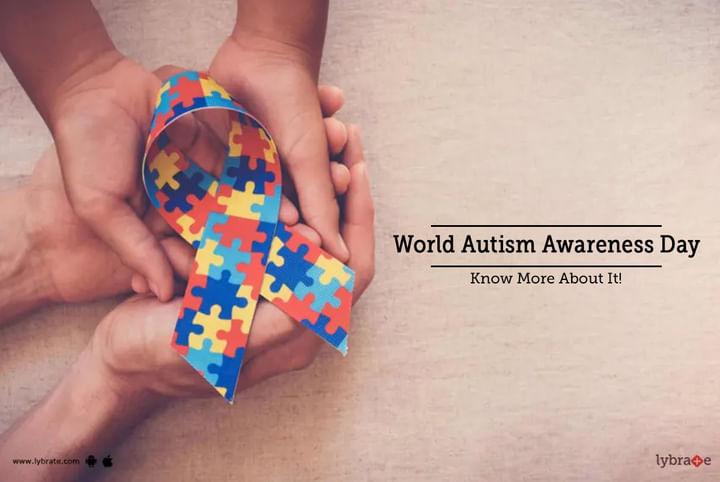World Autism Awareness Day - Know More About It!
World Autism Awareness Day is an internationally recognized day on 2 April every year, encouraging the Member States of the United Nations to take measures to raise awareness about people with Autism Spectrum Disorder (ASD) throughout the world. It was designated by the United Nations General Assembly resolution '62/139. World Autism Awareness Day', passed in council on 1 November 2007, and adopted on 18 December 2007. It was proposed by the United Nations representative from Qatar, Her Highness Sheikha Mozah Bint Nasser Al-Missned, Consort of His Highness Sheikh Hamad Bin Khalifa Al-Thani, the Emir of the State of Qatar, and supported by all member states.
World Autism Day is one of only seven official health-specific UN Days. The day itself brings individual autism organizations together all around the world to aid in things like research, diagnoses, treatment, and acceptance for those affected by this developmental disorder. This resolution was passed and adopted without a vote in the UN General Assembly, mainly as a supplement to previous UN initiatives to improve human rights.
Autism spectrum disorder (ASD) or Autism is an umbrella term for a group of developmental disorders that are neurological in origin and cause social, communication and behavioural challenges. Autism is not a mental illness.
Autism is a disorder-look out at both the social and medical model of the disorder. The disorder is sometimes considered as an impairment. Impairment in one or more areas like physically, intellectually, cognitive and sensory wise and so and so forth. So, you think an answer is a person who is disabled. We can say who has impairment is disabled but it is not that simple to answer.
What is a medical model disorder?
A medical model disorder is the model is in which doctors or researchers, medical practitioners look into disorder and illness.
It’s basically a re-foundation of how we treat the sick, injured or disabled people in our society. However, it inserts two things. First, any deviation from the norm must be corrected (the average neuroticism non-disable norm) is bad and must be corrected. Whether or not, this results in any impairment or is not harmful in any way. Two, in the medical model of the disorder, the physician is central to the whole process and helps to understand the situation and getting people better.
Most autistic people have a special interest like someone have arts, some have an interest in signing. Some have an interest in dance and this list goes on for this passion. They learn from the world in which they develop and cure. Some doctors call their passion as an obsession. Basically, a topic an autistic is very interested in. They love it a lot. However, we may look that it is not a wrong way to be passionate about something you like or have a hobby to enjoy your free time. Stopping them to be normal as this autism is considered as a disorder in the society and forcing your child to improve like making more eye contact or other various ways will only degrade their passion inside them. So, this cure culture says that autistic children, they have to be a cure and if they cant cure they must be considered something that separates them from medical model disorder.
What is the social model disorder?
From the UK, we coined the term social model disorder. Because there are different aspect of the disorder as per able people and disable people in society. If a person has impairment like physical, social, or cognitive disorder. It’s not an impairment that makes them disable, its the social exclusion of impairment. Secondly, when it comes to understanding the reason, it becomes the topic of society for ill people. Children with autism can speak but they may have problems because of delayed language development. With effective early intervention, it is possible for them to develop their verbal skills.
While autism cannot be cured, there are many treatment options that can help children cope with autism. The most effective treatment is an intensive, individualized intervention that includes behavioural, social and psychological components. Most of the children who receive appropriate intervention grow on to become fairly independent adults and lead a normal life. It is important to note that children with autism have a range of abilities that can be used to their advantage.



+1.svg)
